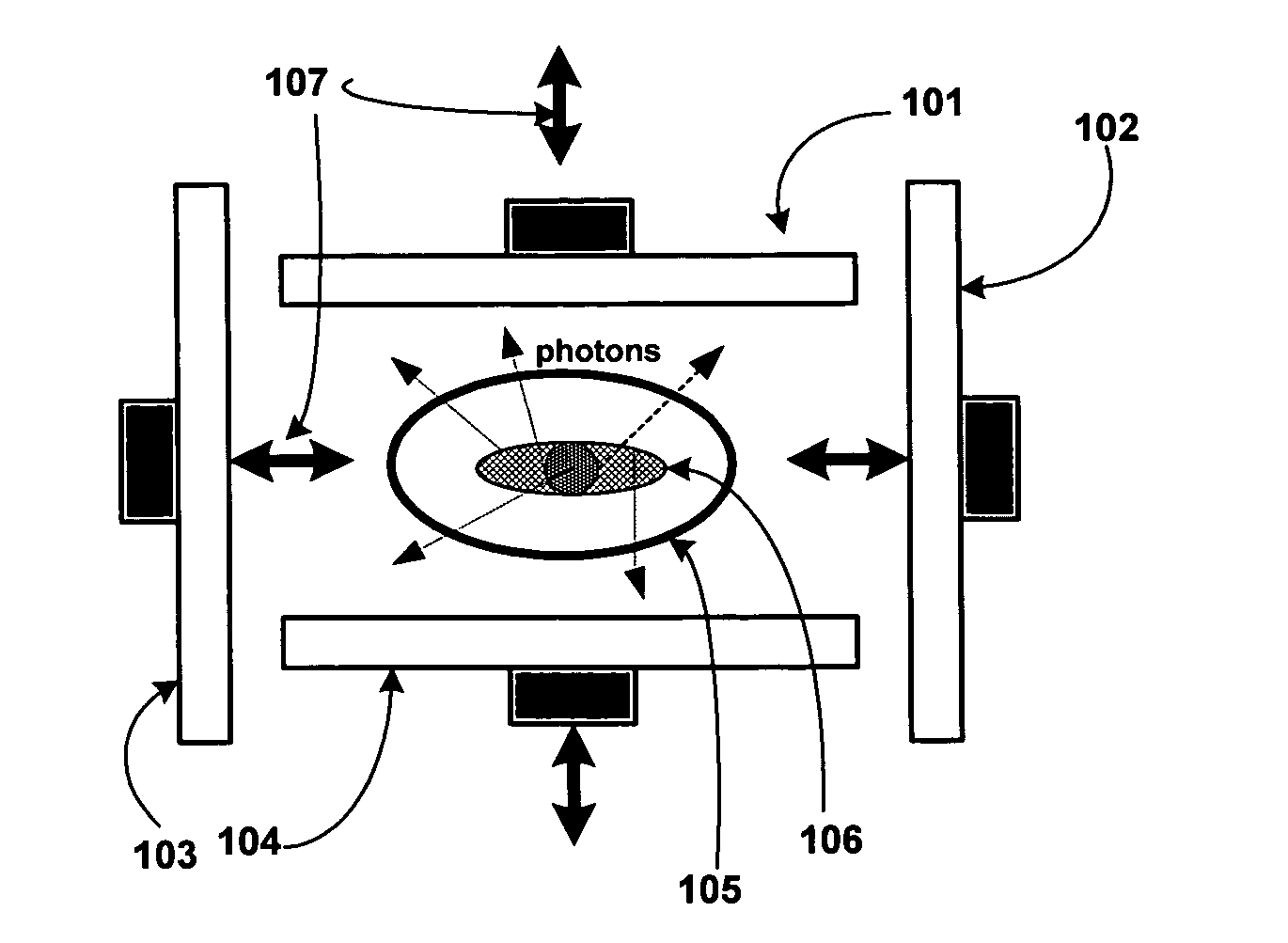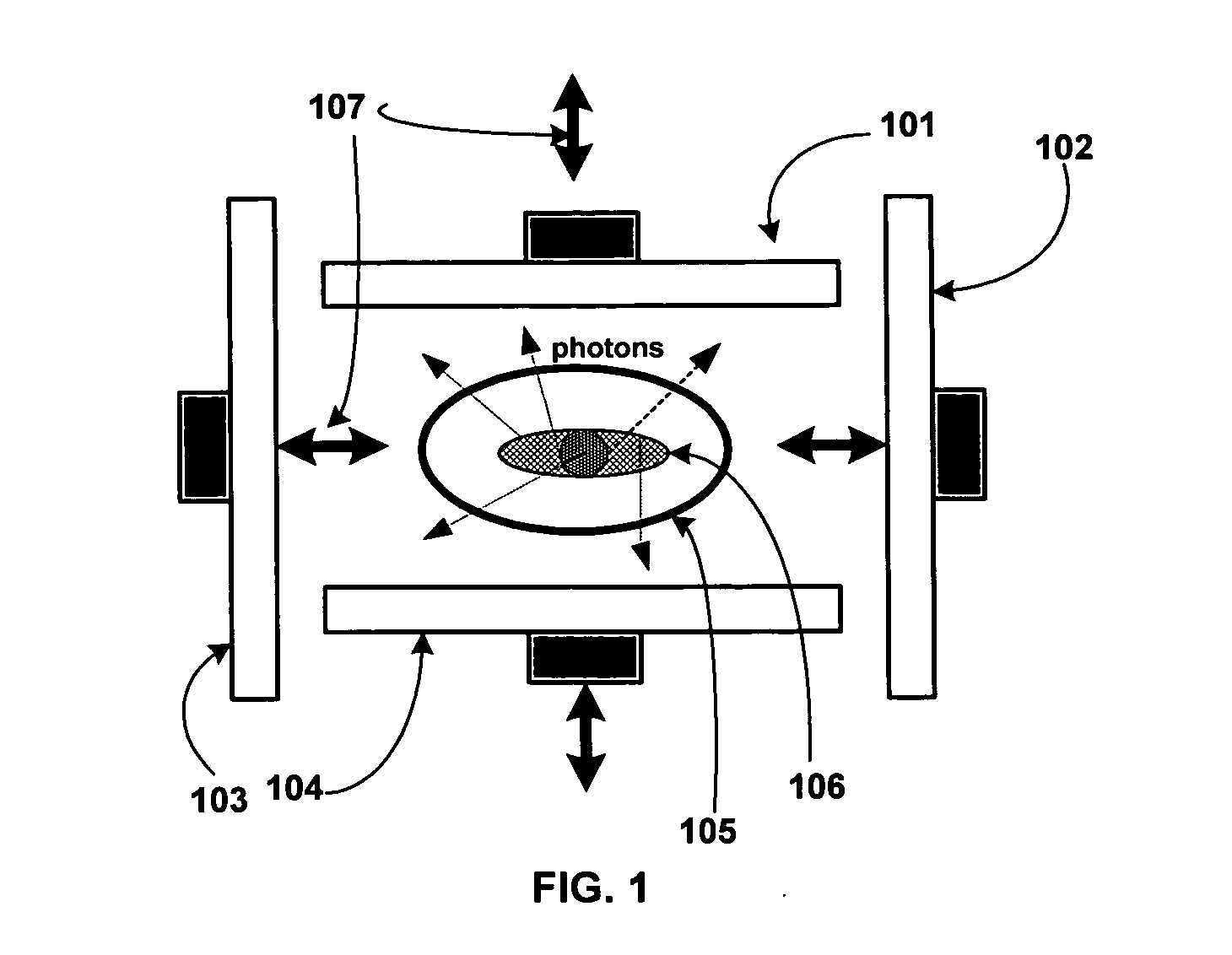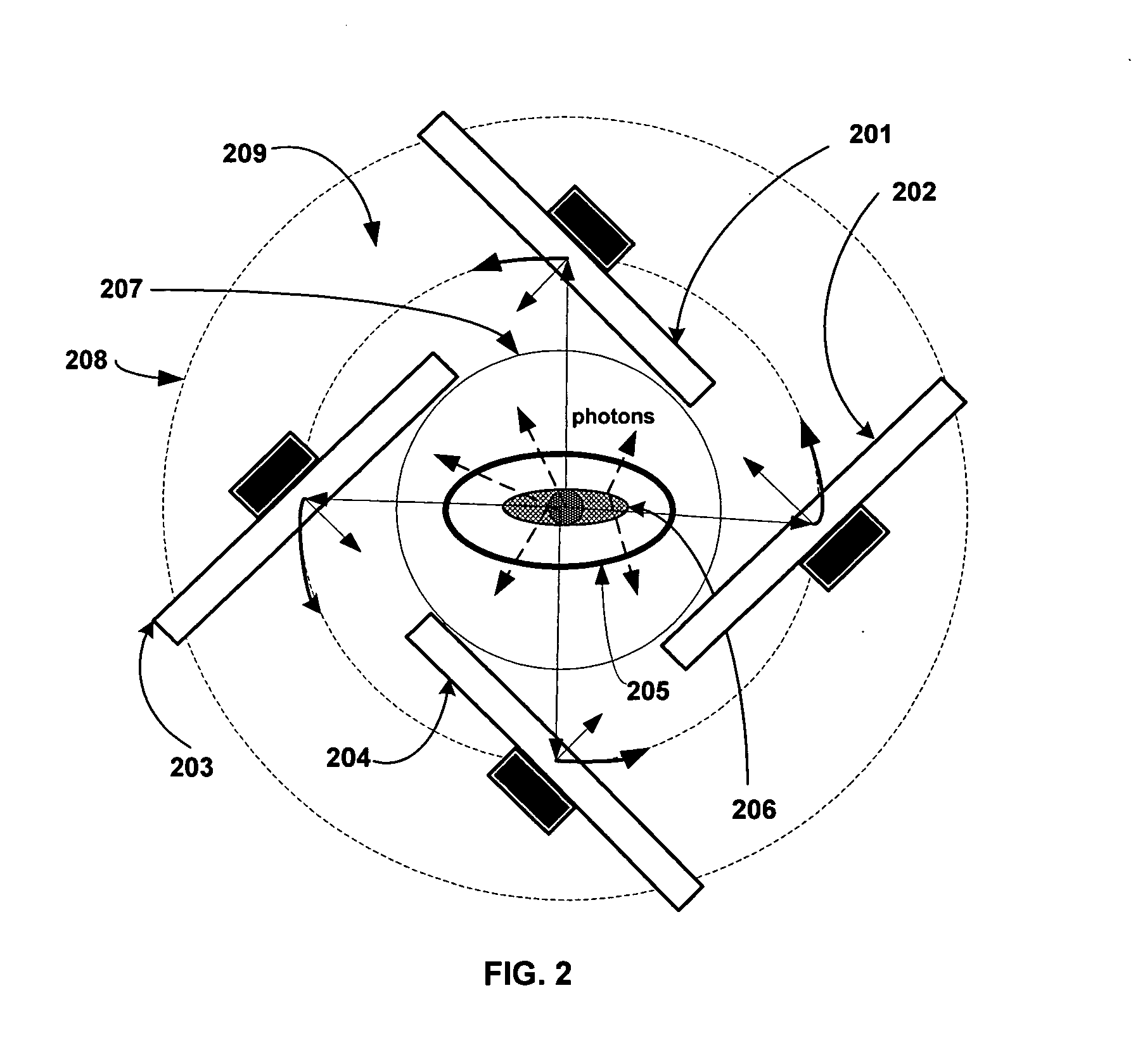Method and apparatus for high-sensitivity Single-Photon Emission Computed Tomography
a computed tomography and high-sensitivity technology, applied in tomography, instruments, nuclear engineering, etc., can solve the problems of low image reconstruction quality, low image data quality, and use of collimators with very narrow apertures, so as to facilitate the reconstruction of image quality, accurate clinical diagnosis of patients, and low ionizing radiation
- Summary
- Abstract
- Description
- Claims
- Application Information
AI Technical Summary
Benefits of technology
Problems solved by technology
Method used
Image
Examples
Embodiment Construction
7.1 Apparatus of the Invention
[0102]A high-sensitivity Single-Photon Emission Computed
[0103]Tomography (SPECT) apparatus includes a two-dimensional (2D) gamma detector array. This is typically a planar photon sensitive array of elements that are collimated. A cross section of such an array is shown in FIG. 5 with parallel-hole collimators, but collimators with other geometries such as converging / diverging holes, fan-beam, and cone-beam arrangements can also be used. In addition, unlike a conventional SPECT machine, each photon detector element or pixel in the 2D gamma detector array is provided with a very large collimator aperture corresponding to a field of view of 5 degrees to 180 degrees. See FIG. 4 and FIG. 5. This increases the sensitivity of the novel SPECT apparatus by a factor of at least 5 and often by over 20 in comparison with a conventional SPECT machine. The photon sensitive detector elements can be sensitive to gamma photons with different energies including photons e...
PUM
 Login to View More
Login to View More Abstract
Description
Claims
Application Information
 Login to View More
Login to View More - R&D
- Intellectual Property
- Life Sciences
- Materials
- Tech Scout
- Unparalleled Data Quality
- Higher Quality Content
- 60% Fewer Hallucinations
Browse by: Latest US Patents, China's latest patents, Technical Efficacy Thesaurus, Application Domain, Technology Topic, Popular Technical Reports.
© 2025 PatSnap. All rights reserved.Legal|Privacy policy|Modern Slavery Act Transparency Statement|Sitemap|About US| Contact US: help@patsnap.com



